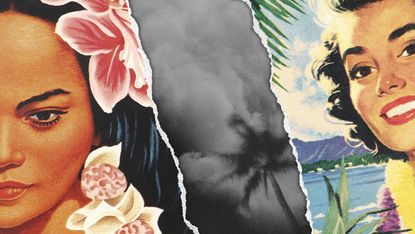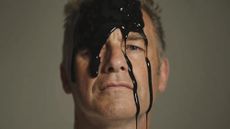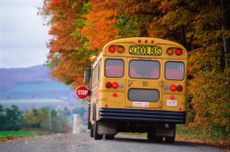Maui travel and the ethics of tourism
Tourism in Hawaii is a double-edged sword, especially in the wake of the fires


Hawaii's historic wildfires have caused devastation throughout Western Maui, and more than 1,000 people are missing while another 100 have died, per Axios. Because of this, locals have been vocal about restricting tourism, especially while search and rescue operations are underway, encouraging tourists to cancel their trips. However, many Hawaii natives have been against tourism in the state for a while, arguing that the industry harms local communities and is largely unsustainable.
How have the fires affected Hawaii tourism?
In the wake of the fires, Hawaii Gov. Josh Green (D) has urged visitors to forgo non-essential travel to Maui. "Visitors in West Maui have largely heeded the call to leave the island, and hotels and other accommodations are needed for displaced residents and emergency workers," he said in a statement. The tourism industry has been helping locals affected by the fires. "Hawaii is obviously all about the people and all about family," owner of Hawaiian helicopter tour company Rainbow Helicopters Nicole Battjes told Axios. "The direct aid has been really powerful." Companies still providing tourist activities have been criticized.
Many Maui residents are also employed by the tourism industry, which makes preventing travel a "fine balance," T. Ilihia Gionson, a public affairs officer for the Hawaii Tourism Authority, told The Guardian. "For so many people to face economic uncertainty or challenges, on top of those who have lost everything in the fire – it compounds the issues and prolongs the recovery." Many residents are also upset at the continued tourism to Maui, with one woman telling BBC, "The same waters that our people just died in three days ago are the same waters the very next day these visitors — tourists — were swimming in."
Subscribe to The Week
Escape your echo chamber. Get the facts behind the news, plus analysis from multiple perspectives.

Sign up for The Week's Free Newsletters
From our morning news briefing to a weekly Good News Newsletter, get the best of The Week delivered directly to your inbox.
From our morning news briefing to a weekly Good News Newsletter, get the best of The Week delivered directly to your inbox.
Travel to the other Hawaiian islands is still running as usual, however, the Hawaii Tourism Authority has urged "visitors to be especially mindful and respectful in our island home as our community continues through this tragedy."
How has tourism affected Hawaii?
Tourists and Hawaiian locals have been at odds for some time now, especially following the Covid-19 pandemic due to the large influx of people following the lockdown. Climate change has caused problems for the state's resources — and while locals have faced water restrictions and fines for non-essential water use, resorts did not face such restrictions, per The Guardian. Sea level rise is threatening the state's iconic beaches. Tourists have also caused harm to Hawaii's coral reefs.
In addition, the Indigenous community has criticized Hawaiian tourism, specifically to the resort town Lahaina, which was once the burial place of the Hawaiian royal family and the first capital of the Hawaiian Kingdom, The Guardian continued. "I think the fire was an acute trauma, but it's really just a punctuation point on the injustice that local people, especially Kānaka Maoli [Native Hawaiians], and immigrants have faced for generations," said Kaniela Ing, national director of the Green New Deal Network.
Despite this, tourism is Hawaii's largest industry and is responsible for 80% of the state's wealth, Reuters reported. "You're kind of raised to hate tourists," a hotel worker told BBC. "But that's really the only way to work on the islands. If it's not hospitality then it's construction."
How can you help the locals?
If you had a trip planned to Maui in the coming weeks, the Hawaii Tourism Authority has advised visitors "to consider rescheduling their travel plans for a later time," The Washington Post reported. While the rest of the islands are open for travel, the resources may be necessary to rebuild Lahaina and the rest of West Maui. "We don't want to overstress their system, especially Oahu," Denise Ambrusko-Maida, owner of Travel Brilliant, told the Post. You can also donate to organizations like the Hawaii Community Foundation, which is raising funds for recovery.
During trips, you can also opt to support local businesses, clean up after yourself, and be mindful of the environment, per Insider. "Going forward, I don't know if it's less tourism, but I think more mindful tourism," Kehaulani Watson of the Native Hawaiian organization ʻĀina Momona told The Guardian. "We have to think about enhancing and evolving the visitor experience to be one that invites people who can contribute to Hawaii, as opposed to just taking from us."

Continue reading for free
We hope you're enjoying The Week's refreshingly open-minded journalism.
Subscribed to The Week? Register your account with the same email as your subscription.
Sign up to our 10 Things You Need to Know Today newsletter
A free daily digest of the biggest news stories of the day - and the best features from our website
Devika Rao has worked as a staff writer at The Week since 2022, covering science, the environment, climate and business. She previously worked as a policy associate for a nonprofit organization advocating for environmental action from a business perspective.
-
 What's Qatar's role in the Middle East conflict?
What's Qatar's role in the Middle East conflict?Today's Big Question Doha hosts both Hamas and a U.S. military base. That puts it at the center of the conflict in Gaza.
By Joel Mathis, The Week US Published
-
 Alleged Sikh assassination plot rocks US-India relations
Alleged Sikh assassination plot rocks US-India relationsTalking Point By accusing an Indian government official of orchestrating an assassination attempt on a US citizen in New York, the Justice Department risks a diplomatic crisis between two superpower
By Rafi Schwartz, The Week US Published
-
 'In Ukraine, sadly, promises are hard to keep'
'In Ukraine, sadly, promises are hard to keep'Instant Opinion Opinion, comment and editorials of the day
By Harold Maass, The Week US Published
-
 What is dark tourism?
What is dark tourism?The Explainer Travelers' fascination with the macabre is not new
By Devika Rao, The Week US Published
-
 Chris Packham: Is It Time to Break the Law? review
Chris Packham: Is It Time to Break the Law? reviewThe Week Recommends Channel 4 documentary grapples with 'profound' questions about the 'climate apocalypse'
By The Week Staff Published
-
 Expiration dates can actually do more harm than good
Expiration dates can actually do more harm than goodThe Explainer Confusion regarding food labeling is leading to unnecessary food waste
By Brigid Kennedy Published
-
 The video game franchises with the best lore
The video game franchises with the best loreSpeed Read The developers behind these games used their keen attention to detail and expert storytelling abilities to create entire universes
By Theara Coleman Published
-
 The buzziest movies from the 2023 Venice Film Festival
The buzziest movies from the 2023 Venice Film FestivalSpeed Read Which would-be Oscar contenders got a boost?
By Brendan Morrow Published
-
 America's troubling school bus driver shortage
America's troubling school bus driver shortageSpeed Read Kids are heading back to school, but they might be having trouble getting a ride
By Theara Coleman Published
-
 5 college admissions trends to watch out for this year
5 college admissions trends to watch out for this yearSpeed Read College advisers and admissions experts say these trends will shape the 2023-2024 admissions cycle
By Theara Coleman Published
-
 What's going on with Fyre Festival II?
What's going on with Fyre Festival II?Speed Read Convicted felon Billy McFarland claims the music festival will happen, for real this time
By Brendan Morrow Published










